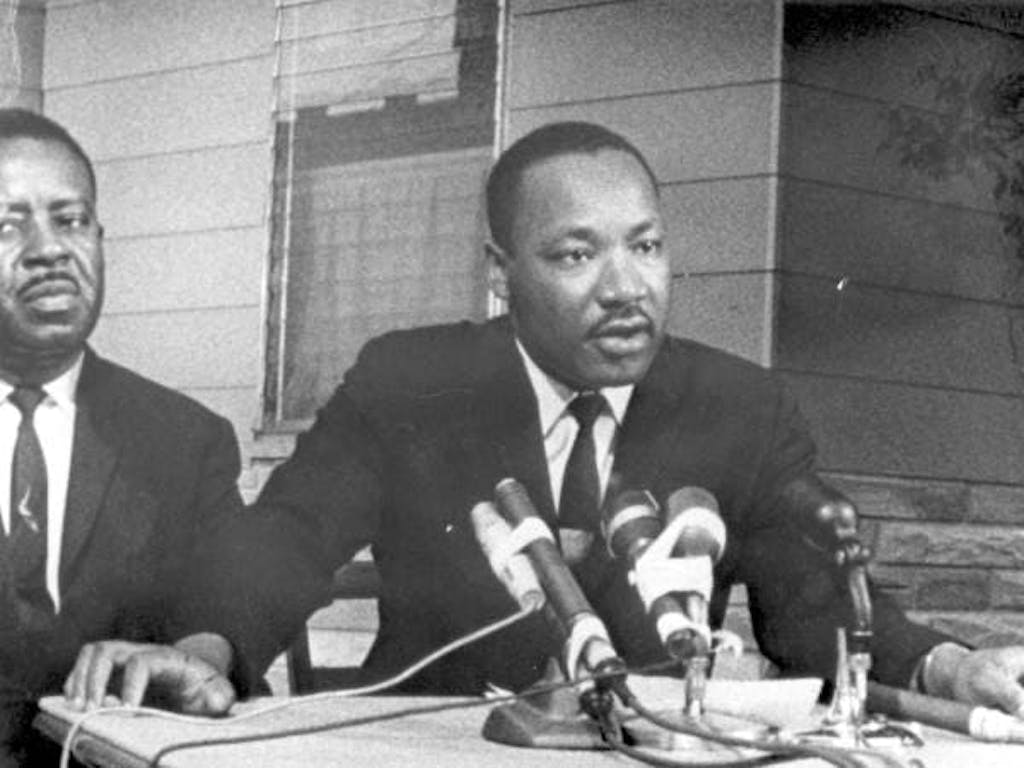Celebrating Martin Luther King in 2019
Today is the annual day dedicated to remembering and celebrating the legacy of Dr. Martin Luther King Jr. (MLK), an icon and emblem of the Civil Rights Movement. The national holiday often focuses on Dr. King’s life and impact on history. While of great historical significance, Dr. King’s life and work also continue to be relevant in the present. And I believe that the life of the man, even more than the historical figure, puts a calling on the lives of all American citizens.
The Discipline of Civil Rights
As a great article in The Atlantic points out, “Before Martin Luther King Jr. became a great man, he was a young man, and he often acted like one.” Long before he championed the cause of civil rights, led the Montgomery bus boycott, or marched on Washington, the article remembers, “Martin Luther King Jr. was a chain-smoking, pool-playing student…just discovering his passion for social justice.” Yet repeatedly coming face-to-face with racism, poverty, and economic injustice brought the young King to a reckoning, and eventually shaped him into a leader capable of inspiring and leading a movement.
There are important lessons from the youth of the man who would be memorialized as a great leader of the 20th century. King became a leader when he recognized injustices that he could not ignore. And he acted.
It would be easiest for 21st century Americans to sit comfortably and hope that someone else solves the injustices we see. Yet King’s writing reminds us that poverty, racism, and systemic exploitation will never work themselves out. America can achieve a brighter future for vulnerable people only by applying “constant, persistent, legal, and non-violent pressure.” That takes discipline focused on the goal. As King himself wrote in his famous “Letter from Birmingham Jail,” “the goal of America is freedom.”
Injustice Remains
While 21st century Americans remember and celebrate the man, do not ignore that many of the injustices King condemned continue into this age. The disciplined pursuit of civil rights requires consistent reckoning and constant evaluation. Does society uphold the “unalienable” human rights of all people? Do we keep those in power accountable? As long as there remains inequality, exploitation, or violence, Martin Luther King Jr.’s call to challenge current systems remains pertinent.
 “Civil rights” is not a strictly legal or political term. Neither does it refer simply to an era of history. Instead, it is a process of acknowledging past and current wrongs. And enacting works and policies to create present and future justice.
“Civil rights” is not a strictly legal or political term. Neither does it refer simply to an era of history. Instead, it is a process of acknowledging past and current wrongs. And enacting works and policies to create present and future justice.
What do we do now?
In 2019, human rights violations and injustice appear in the prevalence of poverty, incarceration, refugee crises, war, violence, hunger, and more. Celebrating MLK Day in a way that truly honors the legacy of the man requires careful examination. We must analyze our involvement in the plights of people marginalized. And then act on behalf of their freedom.
Learn how Food for the Hungry (FH) walks with vulnerable people here.
More articles you may be interested in:
9 Powerful Martin Luther King Jr. Quotes on Eradicating Poverty



